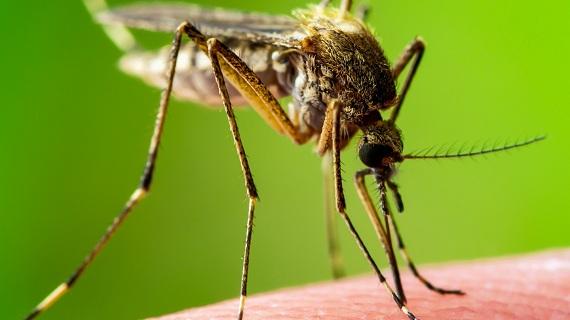-Call for political will to reduce burden

Drug experts in Nigeria have attributed the lack of economic growth and development in the country to its high burden of malaria, as its malaria related absenteeism and productivity loss is pegged at an estimated one-billion-dollar.
They maintain that as malaria spreads every year, health and development bear the brunt, with the Sub-Saharan African Region leading with 1.3 percentage reduction in economic growth due to the disease.
The pharmacists call on government to reverse the negative trend through demonstrative political will, strategic information dissemination and coordinated national malaria response.
The experts, who spoke during the commemoration of World Malaria Day 2021, tasked government on vector control mechanisms and environmental reengineering to end malaria in Nigeria.
National Chairman, Association of Hospital and Administrative Pharmacists of Nigeria (AHAPN) Dr Kingsley Chiedu Amibor, speaking during the association’s programme for the Day said
an aggressive new approach to jump-start progress against malaria has become inevitable, as Nigeria has been identified as one of the 11 counties that carry a high burden of the disease.
He emphasized that a high burden to high impact response model is advocated.
“Every year that malaria spreads, health and developments bear the brunt. On the average, malaria is responsible for an annual reduction of 1.3% of Africa’s economic growth. Malaria related absenteeism and production losses cost Nigeria close to an estimated 1-billion-dollar loss annually.
“Is zero malaria really attainable? Yes, some parts of Africa have. Algeria has been certified malaria fee, while Ghana, Namibia and South Africa achieved the 2020 milestones of reducing malaria incidence and deaths by 40%, compared to 2015. Unfortunately, Nigeria is one of the malaria-endemic countries in the WHO African Region that did not achieve these milestones”, he asserted.
Going forward in winning the war against malaria, he insisted that vector control remains the main way to prevent and reduce malaria transmission. Two forms of vector control namely insecticide treated mosquito nets and indoor residual spraying are effective in a wide range of circumstances.
He also advocated provision of affordable antimalarial for the masses who cannot afford expensive medicines, while drawing attention of the global community to the possibility of the gradual emergence of resistance to ACTs, and the need to re-evaluate the quality and efficacy of artemisinin-based combination therapy agents in Nigeria and other parts of Africa.
In his contribution to the World Malaria Day 2021 celebration, the President, Pharmaceutical Society of Nigeria (PSN) Pharm. (Mazi) Sam Ohuabunwa, urged governments to be intentional with town planning and discourage unauthorised constructions that disrupt waterways, while ensuring that drainages are covered to discourage mosquitoes breathing sites.
Ohuabunwa, in a statement made available to Pharmanews, also charged the National Orientation Agency (NOA) to rise to its obligation on health education and promotion, by embarking on continuous campaign against unhealthy practices in the community, which had hitherto enhanced the prevalence of malaria in the county. “For instance, throwing empty food cans indiscriminately, overgrown bushes and blocked drainages around living homes, should be highly discouraged”.
The PSN helmsman further tasked the NOA on the promotion of programmes on malaria prevention such as the distribution and use of Long Lasting Insecticidal Nets, intermittent prophylaxis for pregnant women, evidence-based health education on the mode of malaria transmission, while indoor residual spraying with effective insecticide should be facilitated by the government through the pharmacists.










